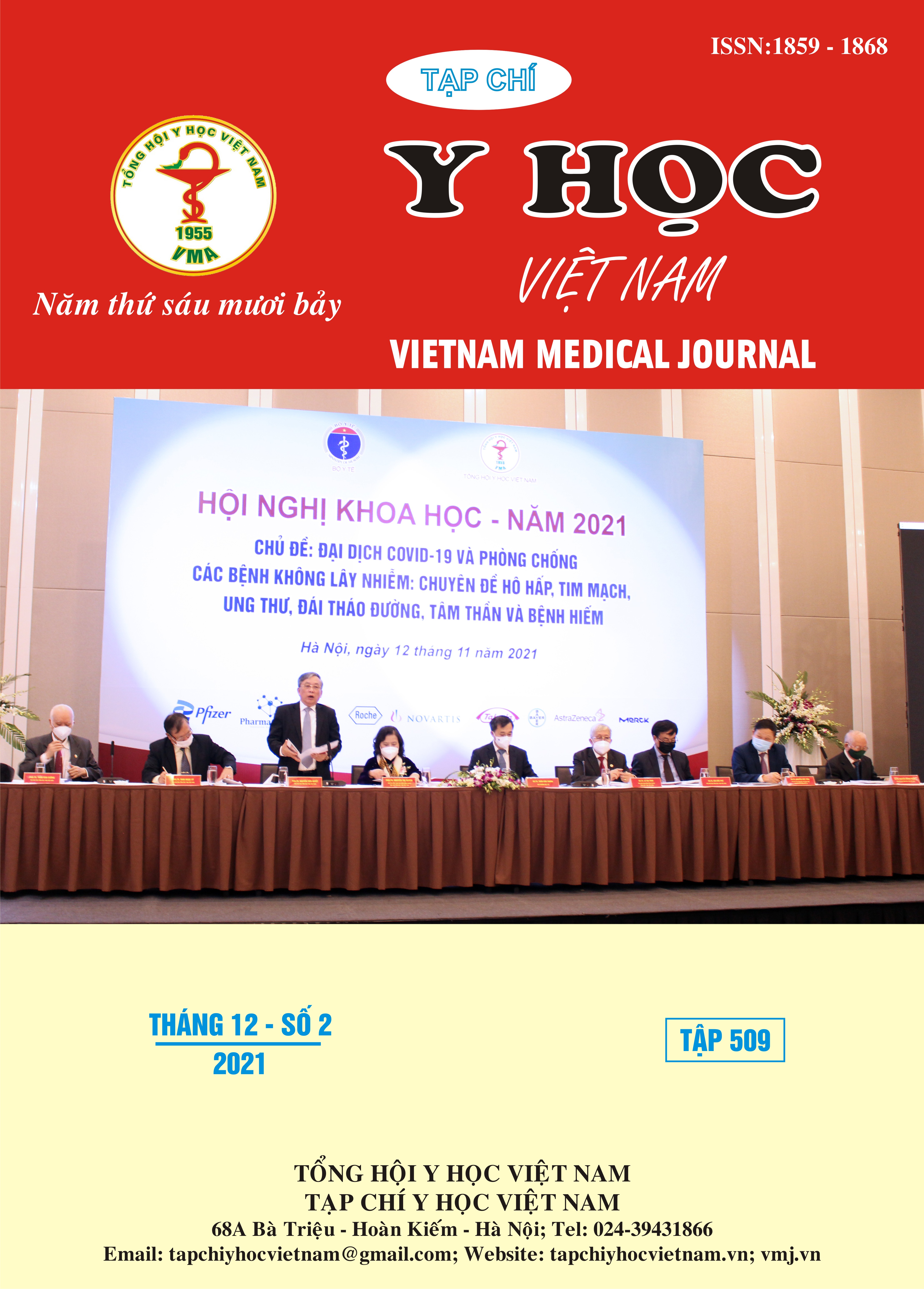NGHIÊN CỨU SỰ THAY ĐỔI AFP, AFP-L3, PIVKA-II TRƯỚC VÀ SAU ĐIỀU TRỊ BỆNH NHÂN UNG THƯ BIỂU MÔ TẾ BÀO GAN
Nội dung chính của bài viết
Tóm tắt
Mục tiêu: Mục đích của nghiên cứu đánh giá vai trò của bộ ba marker AFP, AFP-L3, PIVKA-II trong việc đánh giá điều trị của bệnh nhân ung thư biểu mô tế bào gan. Đối tượng và phương pháp: Tổng số nghiên cứu trên 29 bệnh nhân ung thư biểu mô tế bào gan tham gia nghiên cứu được đánh giá đặc điểm lâm sàng, cận lâm sàng và sự đáp ứng của AFP, AFP-L3, PIVKA-II sau điều trị 1 tháng và 3 tháng. Kết quả: Trong 29 bệnh nhân, tuổi trung bình của bệnh nhân là 60,5 ±10,1 tuổi. Các yếu tố nguy cơ của ung thư gan là viêm gan virus B, C và rượu. Kết hợp 3 marker AFP, AFP-L3 và PIVKA-II giúp làm tăng độ nhạy trong chẩn đoán HCC so với việc sử dụng đơn độc từng marker. Sau điều trị 1 tháng và 3 tháng bằng phương pháp TACE hoặc RFA ở bệnh nhân HCC, nồng độ huyết thanh trung bình của các marker AFP, AFP-L3 và PIVKA-II giảm so với trước điều trị Kết luận: Kết hợp 3 marker AFP, AFP-L3 và PIVKA-II giúp tăng khả năng dự báo đáp ứng về chẩn đoán hình ảnh sau điều trị bệnh nhân ung thư biểu mô tế bào gan so với việc sử dụng đơn độc từng marker.
Chi tiết bài viết
Từ khóa
AFP, AFP-L3 và PIVKA-II, ung thư biểu mô tế bào gan
Tài liệu tham khảo
2. Bosetti C, Turati F, La Vecchia C: Hepatocellular carcinoma epidemiology. Best practice & research Clinical gastroenterology 2014, 28(5):753-770.
3. Park H, Park JY: Clinical significance of AFP and PIVKA-II responses for monitoring treatment outcomes and predicting prognosis in patients with hepatocellular carcinoma. BioMed research international 2013, 2013:310427.
4. Song P, Gao J, Inagaki Y, Kokudo N, Hasegawa K, Sugawara Y, Tang W: Biomarkers: evaluation of screening for and early diagnosis of hepatocellular carcinoma in Japan and china. Liver cancer 2013, 2(1):31-39.
5. Lim TS, Kim DY, Han KH, Kim HS, Shin SH, Jung KS, Kim BK, Kim SU, Park JY, Ahn SH: Combined use of AFP, PIVKA-II, and AFP-L3 as tumor markers enhances diagnostic accuracy for hepatocellular carcinoma in cirrhotic patients. Scandinavian journal of gastroenterology 2016, 51(3):344-353.
6. Bertino G, Ardiri AM, Calvagno GS, Bertino N, Boemi PM: Prognostic and diagnostic value of des-γ-carboxy prothrombin in liver cancer. Drug news & perspectives 2010, 23(8):498-508.
7. Park WH, Shim JH, Han SB, Won HJ, Shin YM, Kim KM, Lim YS, Lee HC: Clinical utility of des-γ-carboxyprothrombin kinetics as a complement to radiologic response in patients with hepatocellular carcinoma undergoing transarterial chemoembolization. Journal of vascular and interventional radiology: JVIR 2012, 23(7):927-936.


